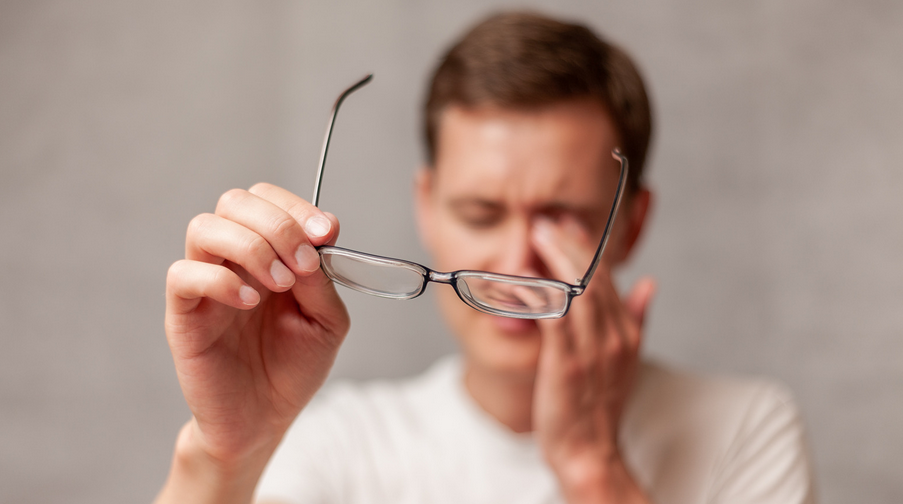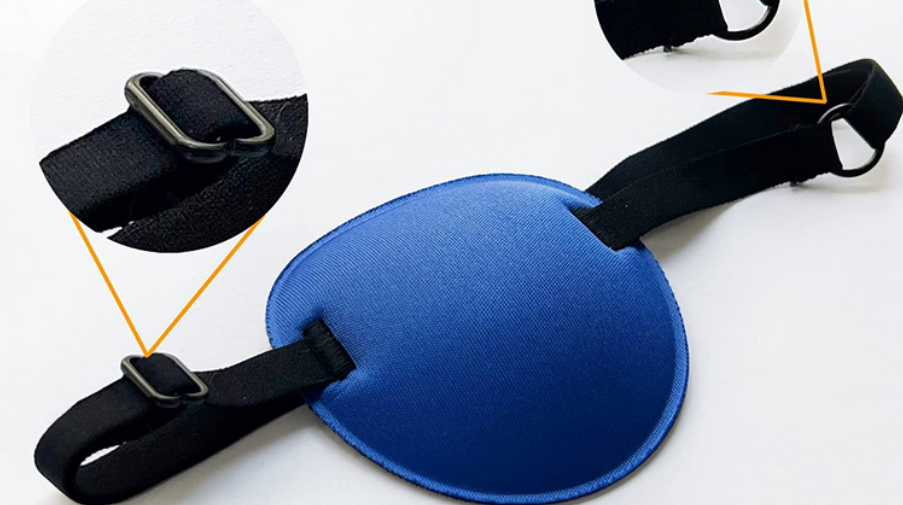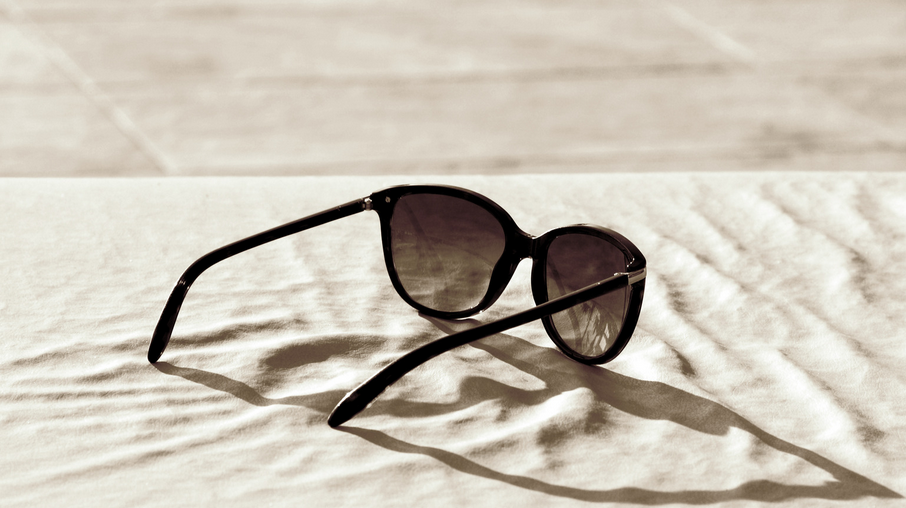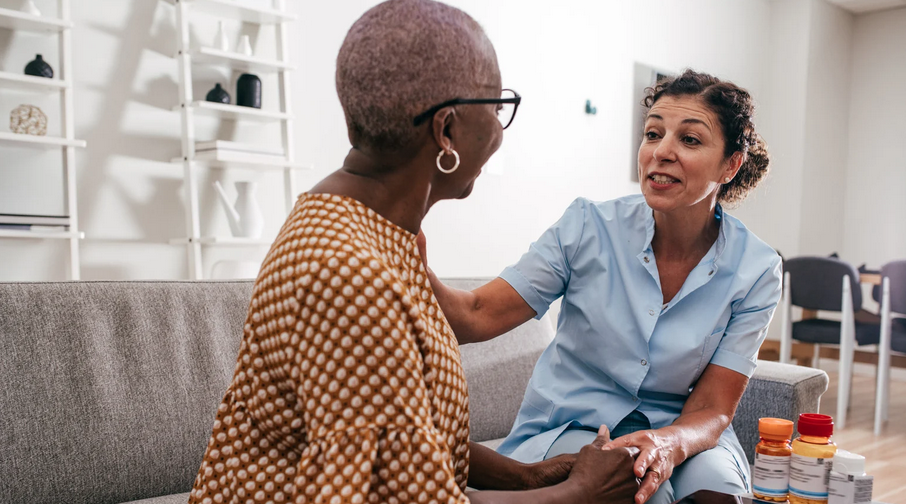Commonly Overlooked Causes of Double Vision in the Elderly

As we age, our bodies undergo many changes, some of which may be cause for concern. One such issue, which can be alarming and uncomfortable, is double vision. Double vision often leads to a quick trip to the eye doctor, as it is a sign of many possible health issues. However, when it comes to the elderly population, some less common causes of double vision in the elderly are often overlooked.
This blog post will explore these causes and discuss their impact on the elderly population. We will also take a look at the appropriate treatments for each cause and some preventive measures that can be taken to reduce the risk of double vision. By understanding how to recognize and treat double vision in the elderly, we can ensure that seniors stay healthy and can continue to lead active and fulfilling lives.
What Is Diplopia?
Diplopia is the medical term for double vision. It is a condition where a person sees two images of the same object instead of just one. Several factors, including poor eye alignment, muscle problems, and brain damage, can cause double vision. Some cases are temporary, while others may require medical treatment. It is a common condition that affects many people, particularly the elderly. However, it can also occur in young children.
Types and Causes of Double Vision in the Elderly
There are two common types of diplopia: monocular and binocular. Monocular means that vision issues are caused by problems in a single eye. On the other hand, binoculars mean that vision problem are caused by problems in both eyes.
Determining the type of Diplopia, your loved one is experiencing is simple. The senior has to close one eye – monocular Diplopia persists with the unaffected eye closed. With binocular Diplopia, closing either of the senior’s eyes alleviates complaints.
Monocular Diplopia is a visual problem that occurs when you have a problem with one of your eyes. A problem within the brain or the nerves in the eyes may be the cause of binocular Diplopia. Once the physician determines which type of Diplopia your senior loved one has, they can begin looking for the cause.
Causes: Monocular Diplopia

Lots of people, especially seniors with monocular Diplopia, complain that one of the images will be very clear while the other will be washed out or faded.
- Cataracts – This is a medical condition where the lens of your eye becomes cloudy. Cloudiness can blur your vision, leading to double vision. Cataracts can be treated through surgery, making the cloudiness disappear and your vision become clearer. Senior citizens are more at risk of having cataracts as they age.
- Dry Eye – Dry Eye Syndrome is diagnosed when your eyes do not produce enough tears, thus making them dry. This condition is common among seniors, as their eyes do not produce the same amount of tears as younger individuals. It can also cause blurry vision and other eye issues, which may lead to double vision. You can manage dry eye with eye drops.
- Severe Astigmatism – This is a condition where the cornea of your eye curve unevenly, causing light entering into the eye to focus in different spots instead of as one image on the retina. This can cause double vision and may lead to eye strain.
- Pterygium – This is the most common cause of double vision in the elderly. A pterygium is an eye growth that causes your cornea to become cloudy and blurry, leading to double vision. Doctors can treat pterygium by removing it during surgery or treating it with steroids and anti-inflammatory medications.
Causes: Binocular Diplopia

Diplopia occurs because the two eyes are not working together. Individuals with this type of double vision will report that the two images they notice are equally clear.
- Diabetes – This disease causes blood sugar levels to become too high. The short-term symptoms of diabetes include lack of energy, blurred vision, changes in mood, and poor balance. These symptoms are common among seniors, as the disease often strikes during their senior years. However, it can also lead to long-term vision problems due to damage to the nerves that control eye muscles.
- Nerve Damage – Diplopia may occur when there’s damage to the optic nerve, the nerve that connects the eye to the brain. If this nerve is damaged, it leads to double vision, as your brain receives two images of the same image at once. The cause of damage to this nerve is rarely known; however, infections such as meningitis and multiple sclerosis can be causes of this condition.
- Myasthenia Gravis – Myasthenia gravis is a rare condition that causes a person’s muscles to become weak. In most cases, myasthenia gravis attacks the junctions between nerve and muscle. If this junction is damaged, signals from the brain to the eye muscles are not delivered correctly. This causes double vision as your brain tries to make sense of what it sees.
- Cranial Nerve Palsy – This refers to any injury to one of the cranial nerves. These are the nerves that connect your brain and eyes to your face and head. When these are damaged, it leads to double vision. The cause of cranial nerve palsy can be a stroke, head injury, or even tumors in the brain or neck.
Diplopia Diagnosis
Should your senior loved one be experiencing a vision problem, it is important to get a proper diagnosis. Diplopia is a symptom of something unusual going on within a senior’s brain, nervous system, or eye. The issue needs a full evaluation to uncover the cause.
Diagnosing Diplopia as monocular or binocular is typically straightforward. Identifying the cause may be more challenging. If your senior has Diplopia, the vision experiences and symptoms will aid the diagnosis.
When your loved one visits a doctor, they will record the symptoms and perform tests to look for other vision problems. Doctors will also likely conduct a test to diagnose the type of double vision.
Once your loved one has a diplopia diagnosis, the process of finding a cause starts. To do this, the doctor will likely perform the following types of testing:
1. Assess the Current State of Health
The doctor and your senior loved one will take time to update her health history. This may include:
- Full History of the Symptoms – The doctor will ask the senior loved one to describe her symptoms in detail. This includes when it started, how often it occurs, and what triggers it. A doctor may also ask about any other symptoms related to Diplopia.
- Personal Health History – The doctor may consider health conditions and prior surgeries that could affect the senior loved one’s vision. This may include thyroid problems, diabetes, or neurological disorders.
- Family Health History – Doctors will ask about any family history of vision problems such as glaucoma, cataracts, and myasthenia gravis. These problems may be a good starting point for their own diagnosis.
2. Physical Exam
After the doctor and your loved one’s full health history is taken, the doctor will assess her health by performing a physical exam to determine if there is an underlying medical condition causing or contributing to Diplopia.
- eye movement tests
- toxicity tests
- blood tests to check for an infection
- imaging tests like CT scans or MRI
- blood sugar readings
Diplopia Treatment and Home Remedies

Once the doctor determines the causes and symptoms of Diplopia in seniors, they will be able to prescribe the right treatment. In most cases, vision problems can go away once you correct or treat the underlying problems.
1. Eye Patch
If you are experiencing Diplopia, an eye patch may be used to cover one eye and reduce double vision. The doctor will likely prescribe a patch if you have a detached retina or other eye condition that causes blurry vision.
2. Corrective Lenses
Some people with Diplopia may be able to correct the double vision using corrective lenses. If the double vision is temporary, a doctor may recommend that your loved one wears contact lenses or glasses.
3. Eye Exercise
Eye exercises are designed to smooth eye movements and improve muscle coordination in the eyes. This helps to reduce double vision, which leads to improved clarity of sight for your senior loved one. The common eye exercise for double vision is Pen-to-nose convergence, Jump convergence, Dot card, and Stereograms.
4. Surgery
In some cases, the doctor may recommend that your loved one have surgery to treat their Diplopia. This is usually the last resort for the treatment of Diplopia.
Prevention of Eye Diseases

As someone who takes care of a senior loved one, you know their well-being is your top priority. Preventing a vision problem and saving them from future Diplopia is crucial for their well-being. Taking steps in eye care for seniors at home is important.
Though numerous causes can lead to Diplopia, it is possible to avoid them if you make simple changes to your daily routine. Here are some helpful tips for preventing a vision problem:
- Soothe dry eyes – Always make sure that your senior’s eyes are moist and clean. Avoid air blowing directly in the eyes. If they are reading or doing tasks that need visual concentration, advise taking periodic eye breaks.
- Control diabetes – Always eat a healthy diet to control or prevent diabetes, including fruits, vegetables, and other foods rich in vitamin A. Check the amount of sugar in the food you are eating.
- Prevent the development of cataracts – Regularly wear UV protection glasses when exposed to UV (sunlight) rays.
- Prevent head injuries – Wear protective wear whenever your loved ones engage in activities involving your eyes, such as sports, gardening, or fishing.
Taking Care of a Senior with Vision Problems
Eye problems like Diplopia can be challenging to manage. A senior with vision problems often need special care, and you may have to adjust your daily routine. Luckily, there are ways for you to take care of your senior loved one while also maintaining their independence.
1. Remove Clutter
Do not let clutter in your home be the cause of the vision problem. You may need to adjust your daily routine and clear excess items off of the floor, table, and other surfaces where they can be easily knocked or tripped over.
2. Verbal Cues
Use verbal cues; your senior may have difficulty seeing, especially at night. For example, When you relocate something, you can tell your loved one about it. Also, when you are done talking with them, do not walk away without telling your loved one that you are leaving. In a dangerous situation, say “stop” instead of “lookout.” Using a single-word command that literally stops seniors in their tracks is more effective in avoiding accidents.
3. Professional Support

You must ask a question first if your loved one needs help rather than jumping in. Allow your loved one to hold your arm while walking, especially in unfamiliar environments. When they need help being seated, guide your loved one’s hand to the back of the chair, and she’ll then be able to seat herself. Providing support in your loved ones’ daily activities requires a full commitment, which sometimes you cannot give due to your busy schedule. It is at this time you may need the help of a professional. Serenity Senior Care is a proven leader in the senior care industry, providing in-home care where your seniors will live out their golden years. They have certified caregivers and many years of experience helping your loved one with their needs.
You may contact us at our hotline, 973-338-0124, for assessment and schedule a free consultation with our senior care experts for your loved one.
Conclusion
Just like any other eye disorder, Diplopia has numerous causes ranging from age-related to temporary issues. If you have a senior loved one who is experiencing double vision, it is important that you consult with their doctor right away before the problem becomes more severe. With early detection and treatment, your senior loved one will experience a smooth recovery and resume their normal life activities within days.


